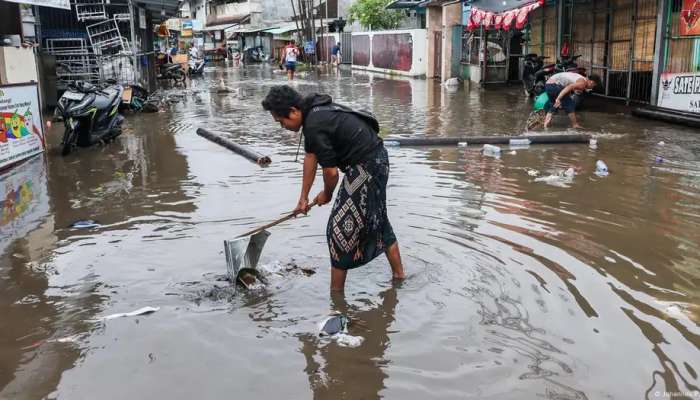
Paris: Ten years after the adoption of the most ambitious international climate agreement to date, the UN's climate chief has said that it is delivering real progress, "but it must work much faster and fairer."
"While direction of travel is improving every year, we have a serious need for more speed, and for helping more countries take stronger climate actions," said Simon Stiell in a statement released in conjunction with a UN report analysing the latest climate goals submitted by countries as part of obligations under the Paris Accord.
Under the terms of the 2015 agreement, world leaders pledged to limit the average global temperature rise to well below 2 degrees Celsius (3.6 degrees Fahrenheit) and pursue efforts to cap it at 1.5 degrees.
Countries also agreed to renew and communicate their targets every five years. The latest submission deadline was earlier this year, and the pressure is now on for states to announce their latest commitments to moving away from fossil fuels.
The emissions from burning coal, gas and oil are driving the changes in Earth's climate and leading to increased drought, flooding, storms and deadly heat.
Countries lagging behind on filing goals
With just over a week to go before the international COP30 climate summit kicks off in the Brazilian city of Belém, only 65 countries have formally delivered their climate goals. This represents around 36% of global emissions, according to analysts at the World Resources Institute, which tracks submissions.
If implemented, the pledges would amount to around a 10% reduction in global emissions by 2035, according to the UN report.
"The transition is underway, progress is happening," said Melanie Robinson, WRI's director of the global climate, economics and finance program, citing investment in solar power, electric vehicles, and climate finance. However, she added that it was not happening fast enough.
UN says the world has missed 1.5 degrees target
Speaking exclusively to UK-based news organization the Guardian, Secretary General of the UN António Guterres said it was "inevitable" that the world would overshoot the agreed temperature rise limit of 1.5 degrees.
"Let's recognise our failure. The truth is that we have failed to avoid an overshooting above 1.5C in the next few years. And that going above 1.5C has devastating consequences. Some of these devastating consequences are tipping points, be it in the Amazon, be it in Greenland, or western Antarctica or the coral reefs," he said.
The European Union, China and India are among the big emitters who have yet to formally submit their targets.
The EU delivered a statement of intent in September indicating plans to reduce its greenhouse gas emissions by between 66.25% and 72.5% compared with 1990 levels. WRI regional director for Europe Stientje van Veldhoven said it showed "scope for progress", adding that it risked "sending a confusing message, eroding investor confidence and undermining jobs, energy security, and competitiveness."
Who has set new goals and who has not
During New York Climate Week in September, Chinese President Xi Jinping also announced the intention to reduce emissions by 7% to 10% from its peak – a level experts believe it has already reached or will soon reach. While critics called the pledge too low, analysts told DW that China would probably meet and possibly even overshoot its commitment.
Other big emitters that have formally submitted their commitments under the United Nations Framework Convention on Climate Change, the UN body charged with supporting a global response to the impacts of global warming, such as Australia and Japan, have been criticised for not showing stronger ambition and doing their fair share.
WRI's Melanie Robinson added that while formal submissions from major emitters, including China and the EU, are expected at some point before or during the COP conference and would help to bring down emissions, there is still a gap.
"We think that leaders need to agree on a decisive global response to get back on track," she said, adding that countries should reaffirm the 1.5 degree goal, accelerate sector specific strategies for reducing emissions and clarify pathways for achieving domestic net zero goals.
However, in its analysis, the UN said the new NDCs show a "progression in terms of quality, credibility and economic coverage."
While it is often emission-reduction pledges that make headlines, countries also include goals on plans to adapt to the impacts of climate change and to pledge finance for developing states.
"The broader picture is of a world which is already paying a huge price from global heating, but which is also nearing positive economic tipping points – towards a safer, healthier, wealthier world, powered by clean energy and climate resilience," said Stiell.